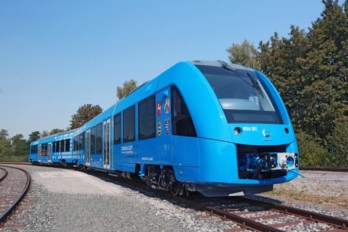Hydrogen in Action: Landmark Trial for Road Building

The UK’s journey toward low-carbon construction marked a significant milestone with the completion of its first large-scale hydrogen-powered equipment trial. The initiative, part of the Lower Thames Crossing development, showcased the practical viability of hydrogen combustion in heavy construction machinery. Conducted at a quarry in Kent, the trial replaced a conventional diesel machine with a hydrogen-fuelled alternative. Results demonstrated that the equipment operated safely, with zero tailpipe emissions and a carbon reduction of approximately 205 kilograms per machine each week.
The trial supports the Lower Thames Crossing’s target to cut construction emissions by 70 percent. The project, set to start as early as 2026, will integrate hydrogen and electric-powered machinery to eliminate diesel use on site by 2027. This initiative forms part of a broader strategy to make the new crossing Britain’s most environmentally responsible road infrastructure to date. Alongside environmental gains, the project also lays the groundwork for developing a hydrogen ecosystem in the Thames Estuary, forecasted to generate £3.8 billion in economic value and create around 9,000 skilled jobs by 2035.

This successful demonstration contributes momentum toward transitioning the construction sector away from fossil fuels. It also provides the confidence and data necessary for suppliers and contractors to invest in hydrogen technology, training, and infrastructure.
Following is a video discussing the project trial hydrogen powered construction.
Sources: nationalhighways.co.uk, agg-net.com, fuelcellsworks.com
Want to read more like this story?

Hydrogen and Nuclear Energy Unite to Cut Asphalt’s Carbon Footprint
Mar, 03, 2025 | NewsThe construction industry is taking a bold step toward sustainability with the introduction of nucl...

Britain delivers hydrogen by rail for the first time
Dec, 04, 2025 | NewsThe UK has achieved a notable engineering and logistics milestone with the first-ever delivery of h...

London's first hydrogen filling station opened its gates
May, 18, 2016 | NewsThe hydrogen fuel station in Teddington uses excess or 'spare' electricity on the grid to generate i...

First Hydrogen-Powered train in the world launched in Germany
Oct, 03, 2018 | NewsThe first hydrogen-powered railway, introducing a more eco-friendly technology of transporting, was...

World's first hydrogen-powered passenger train will be launched in Germany next year
Oct, 21, 2016 | NewsCoradia iLint is a new CO2-emission-free regional train, providing an alternative to diesel power...

From Emissions to Solutions: The Rise of Carbon-Storing Highways
Mar, 30, 2025 | NewsThe UK is at a turning point in road construction. As the government shapes its Road Investment Str...

Construction’s carbon footprint to double by 2050, study warns
Nov, 05, 2025 | NewsA new global analysis published in Communications Earth & Environment warns that the constructi...
The prospects for carbon-neutral buildings
Oct, 27, 2023 | NewsIn the United Kingdom, buildings account for 33% of greenhouse gas emissions and 40% of global ener...

Carbon Reduction in Focus: Lessons from the Edge London Bridge Project
Jan, 20, 2025 | NewsA bold new addition to London’s skyline is taking shape near London Bridge. This 27-storey sustaina...
Trending

Taipei 101’s impressive tuned mass damper

Characteristics of Load Bearing Masonry Construction

China Completes World’s Longest Expressway Tunnel, Redefining Connectivity

The Line at Neom faces feasibility reassessment while construction continues

The Billion-Dollar Airport Boom: 2025 Megaprojects Shaping the Skies

World's longest expressway tunnel to link northern and southern Xinjiang


